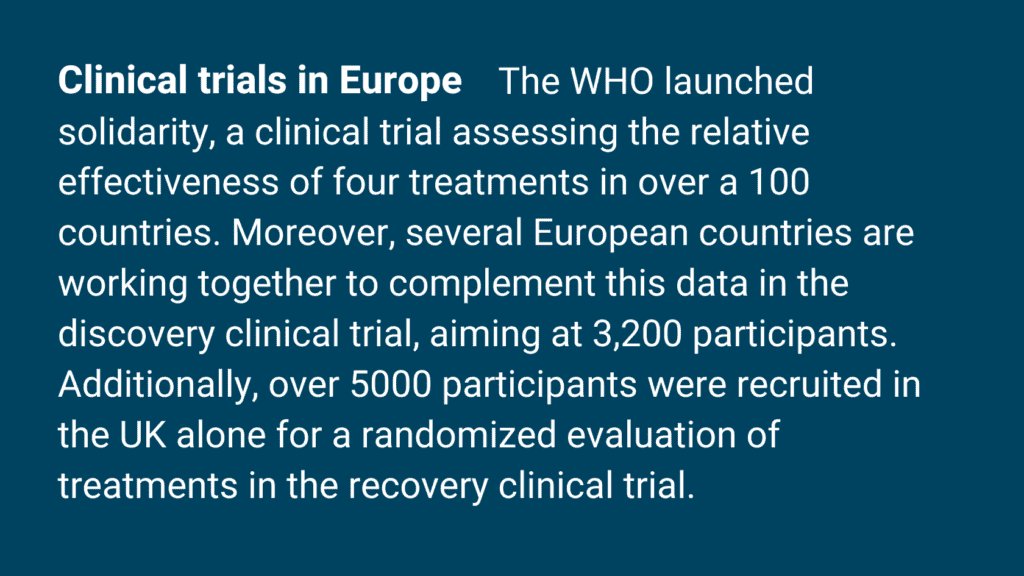This piece was written by HAI intern Simon Geukes.
Developing viable vaccines and treatments to respond to the COVID-19 pandemic is a research priority worldwide. The World Health Organization (WHO) reports there are currently ten candidate vaccines in clinical evaluation, and over a hundred in pre-clinical testing phase. Additionally, numerous clinical trials have been set up to investigate the possibility of repurposing existing drugs to treat COVID-19, such as remdesivir.

With no viable vaccine or treatment currently on the horizon and the pressure for a timely response escalating, temptation to hasten results in clinical studies may build. However, to ensure that the resulting vaccines and therapeutic treatments are safe and effective, it is critical that regulatory procedures approval thresholds are never downgraded. To lower the bar on rigorous testing of safety and efficacy to get vaccines and treatments out the door as quickly as possible, means risking exchanging one problem for another.
It is also essential that good clinical practice is being upheld for the – sometimes severely ill – participants. Compassionate use schemes should be closely monitored by authorities, both in its design and development. Similarly, comprehensive ethical guidelines for clinical trials which already exist should be applied.
With more than a thousand clinical trials currently being conducted, there should be transparency of trial design, status and results. This is imperative to avoid time-consuming fragmentation and duplication of work, and to make sure that decisions are supported by the best-available scientific evidence. Importantly, this means that negative results should be shared as well.
Lastly, the final products should be accessible and available for all, meaning that health should be prioritised over profit. For instance, there should be public return on public investment. If public resources, money and/or expertise have been used in the development or execution of a clinical trial, this needs to be reflected in the price, and the results should be made available to the public. Especially now, market mechanisms must not stand in the way of life-saving treatments.
In broader context, the concerns surrounding clinical trials in the face of a global pandemic demonstrate the need for effective international collaboration, rather than rushed competition. The proposal by Costa Rica to the WHO to pool the rights to technologies that would aid the prevention and treatment of COVID-19, is a promising step in the right direction.